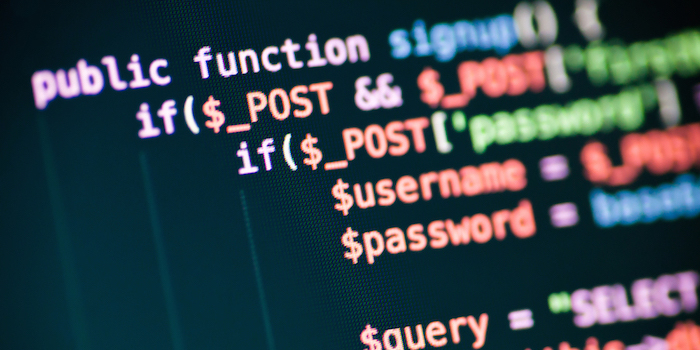With the growing importance being placed on machine learning, a lot of budding developers are applying for a Machine Learning certification in order to get commissioned to work in various machine learning projects and get recruited by IT companies and firms who work with data science and machine learning. Machine learning is highly focused upon by big corporations from IT and various other fields. Future machine learning engineers need to go through lots of books that are about machine learning and which also encourage hands-on experience with projects and problems.

Why learn machine learning?
Machine learning is the ability of machines to learn from datasets without much human interference. This is an automated process by which machines can get more effective. It is also used to efficiently use machines to figure out the solutions to many business and IT problems that corporations face every day.
By learning machine learning, developers can help these corporations and firms gather the human assets and skillsets required to effectively use machine learning for figuring out business solutions or utilize automation in IT processes. A Machine Learning certification verifies the ability of a machine learning engineer and vouches for his or her capability to run machine learning models or implement ML techniques inside projects or processes. Machine learning can also help individuals from other fields and for personal projects as it opens up the door to improve many aspects or methodologies in other fields through automation, machine-prepared insights, and unbiased problem solving or analytics.
Top machine learning books to read
Machine learning books are a great way of gaining advanced knowledge about machine learning algorithms and elements, which can prove to be highly useful if one wishes to pursue a career in machine learning. These books also help us clear our doubts and get valuable insights on the subject. Here are the top 8 books that will definitely help beginners strengthen their foundations in machine learning and assist experienced developers to brush up on different topics or gain advanced knowledge.
1. Machine Learning for Hackers: Case Studies and Algorithms to Get you Started
- By Drew Conway and John Myles White
- Publisher: O’Reilly Media
This book is very informative for experienced programmers who crunch data and want to gain advanced knowledge in this field. The book is geared towards individuals who have strong foundations in mathematics, data analysis, and R, the programming language. R contributes to machine learning heavily and this book explains how R can be used for advanced data wrangling. This book has multiple examples from real life and various case studies, which help budding machine learning engineers grasp machine learning concepts rapidly and with more ease.
2. Machine Learning
- By Tom M. Mitchell
- Publisher: McGraw Hill Education
This book is a great start to learning the fundamentals of machine learning. “Machine Learning”, a much-acclaimed book by Tom M. Mitchell is a must-read, which introduces the concepts of machine learning algorithms and theorems. This book contains a lot of assignments and projects, which is a great way of being able to learn machine learning algorithms and utilize these skills.

3. Pattern Recognition and Machine Learning
- By Christopher M. Bishop
- Publisher: Springer
“Pattern Recognition and Machine Learning” is an excellent book, which helps budding developers understand how to recognize patterns and the use of statistically inclined techniques. This book has a lot of references from existing models and projects to help understand probability distribution, and it also contains a lot of exercises, which can help gather a better understanding of the subject. Even though this book is recommended for beginners, a good hold over Linear Algebra and advanced Mathematics is required before using this book.
4. Understanding Machine Learning
- By Shai Shalev-Shwartz and Shai Ben-David
- Publisher: Cambridge University Press
This book provides a very detailed and planned approach to machine learning. It speaks of the foundations of ML and the fundamental algorithms and theories that power ML. This book is for people from all fields as it also introduces readers to the foundational mathematics and skills that are required for beginners.
5. Machine Learning for Absolute Beginners: A Plain English Introduction
- By Oliver Theobald
- Publisher: Scatterplot Press
As the name suggests, this book is for complete beginners who have no experience in this field. This is the best option that one can go with due to the simple language that the book uses as well as the easy clear explanation that it offers for each element of ML or each machine learning algorithm.
6. Machine Learning for Dummies
- By John Paul Mueller and Luca Massaron
- Publisher – For Dummies
Like the book above, this book too, tries to explain Machine learning concepts and tackles the ML foundations in a simple yet planned way. This book is able to do this through the use of practical examples and daily applications of machine learning. This book focuses on R and Python as the core programming languages to teach students how to use machine learning to discover patterns and run analytics.
7. Machine Learning with TensorFlow
- By Nishant Shukla
- Publisher: Manning Publications
This book is popular due to it offering budding developers a well-detailed introduction to TensorFlow and its applications in machine learning. This book is focused on the coding aspects of ML and covers elements like predictive algorithms, data clustering, and data classification. This book is known to empower machine learning engineers with the ability to use the open-source TensorFlow library and implement it in various applications and projects.
8. Machine Learning: A Probabilistic Perspective (Adaptive Computation and Machine Learning series)
- By Kevin P. Murphy
- Publisher: The MIT Press
This book covers multiple daily applications of machine learning in various fields like Healthcare, Chemistry, Computing and Computer Vision, Bio-technology, Text and Natural Language Processing, and robotics. This book takes a model-centric approach with its primary focus on algorithms and statistical ML models. This book takes a probabilistic route to teach how machine learning is being used in computation and analytics.
Conclusion
Machine learning has a wide variety of uses and there are a lot of skills that should be learned by machine learning engineers in order to effectively contribute to machine learning projects. The range includes algorithms, statistics, programming languages, and analytics. These can definitely help developers get a Machine Learning certification and advance in their careers.







